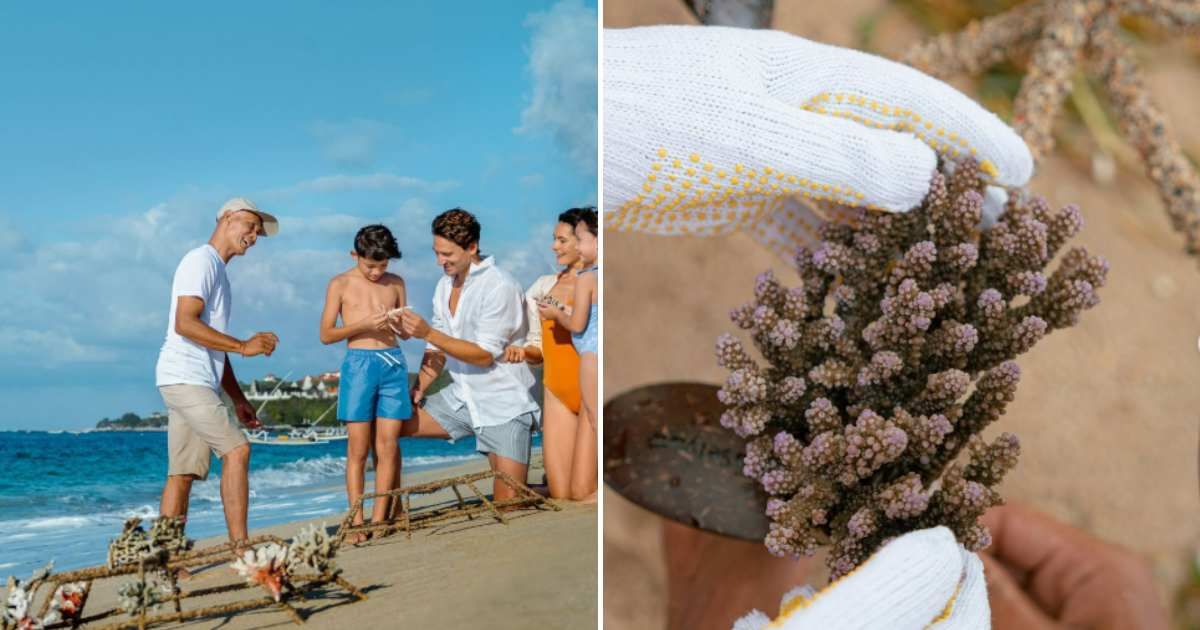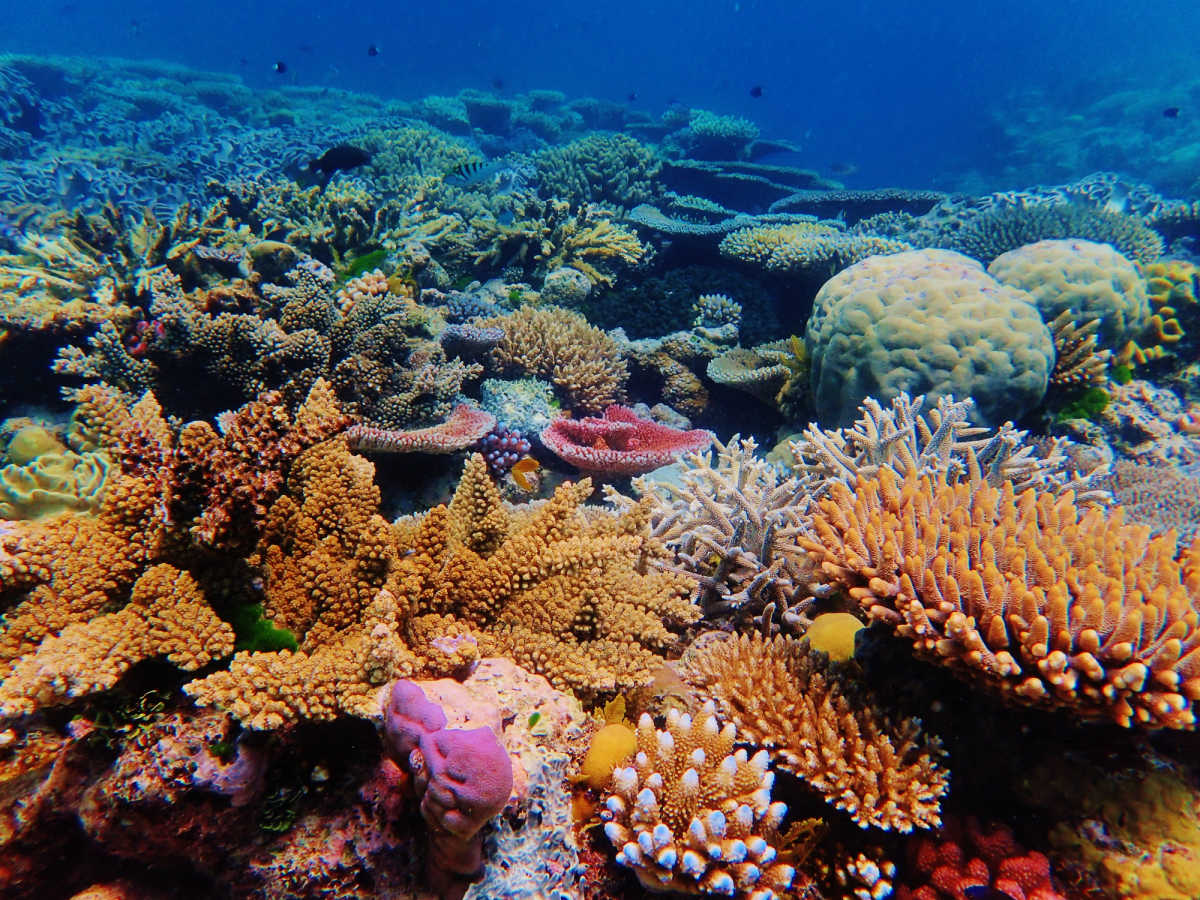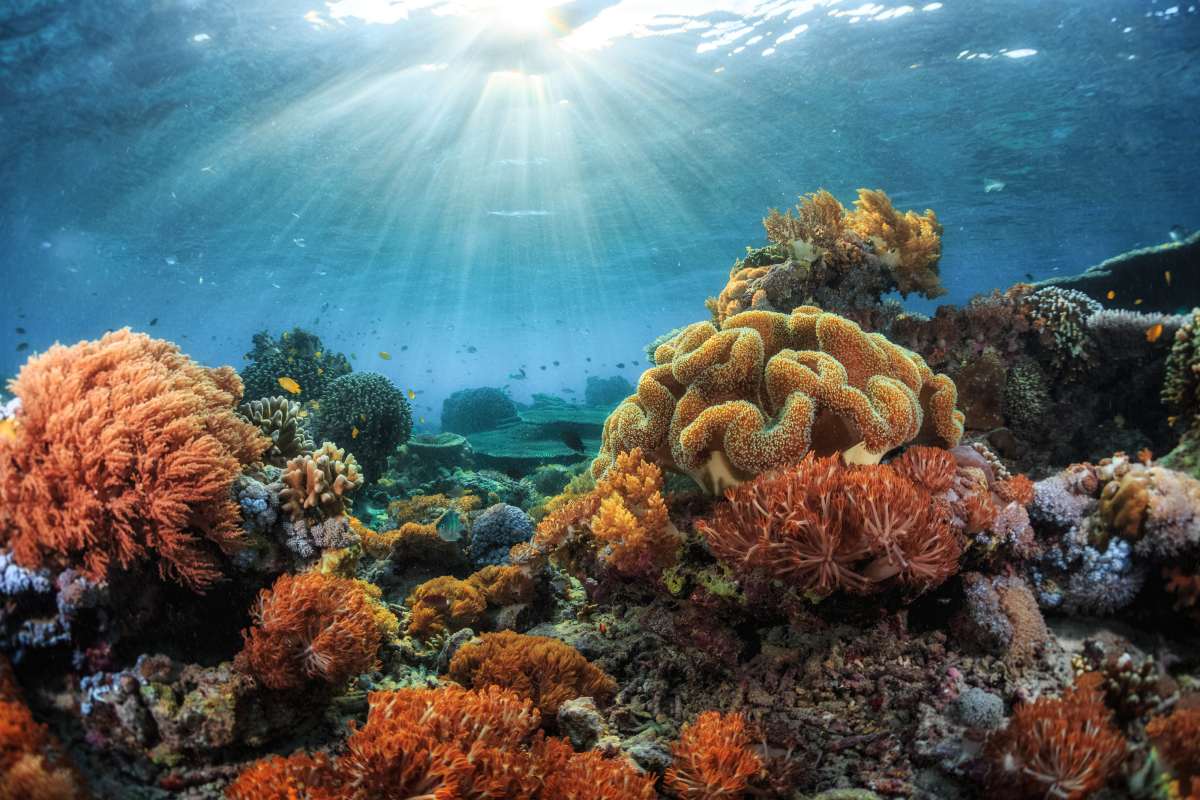This Luxury Resort in Bali Has One Request for Its Guests — Adopt a Coral to Save the Reefs

Coral reefs are often seen as the forests under the sea, as they are home to an incredible variety of marine life. Their vibrant, living structures are not only stunning to see, but they also protect the overall health of the water body and help the people who rely on them in great ways. However, these natural wonders across the world are declining at an alarming rate currently due to rising ocean temperatures, pollution, overfishing, and other destructive practices. Therefore, to protect and preserve them, a luxury resort on the shores of Bali is inviting its guests to plant coral reefs before departing.

The St. Regis Bali Resort has teamed up with the Nusa Dua Reef Foundation, aiming to give a new life to the coral reefs near its coastline. Together, they’re working to restore fragile underwater ecosystems while also handling the threats posed by rapid climate change in recent years. They are trying to restore the reefs using the MARRS (Mars Assisted Reef Restoration System) method, as reported by Good Good Good News. This system uses hexagon-shaped steel frames called 'reef stars.' Coated with sand and resin, they attract corals and sea life, and their unique design lets them fit naturally onto the ocean floor.

On Badi Island in Indonesia, the MARRS method turned a damaged reef into a healthy coral ecosystem in just three years, as reported by Aquamarine Diving. The MARRS approach was developed by scientists in 2006. In an official statement, the Bali resort stated, “Guests can ‘adopt’ and plant their own coral-bearing ‘Reef Stars’ on the seabed – creating a tangible, personal link to ocean conservation." They added, “Rooted in the Balinese philosophy of Nyegara Gunung, the program is deeply embedded in local tradition and supported by science."
View this post on Instagram
The resort also revealed, "Efforts are monitored for real impact, and tied to broader initiatives like coastal cleanups, school outreach, and reef-safe guest education.” Moving ahead, the resort claimed, “At a time when travelers are demanding more from luxury – and greenwashing is under the microscope – The St. Regis Bali offers a powerful example of purpose-driven hospitality." Coral reefs play a major role in protecting the shores from storms and provide jobs to millions of people through the fishing and tourism industry. Reefs also help in the introduction of new medicines, making them vital for both nature and people, as reported by the National Oceanic and Atmospheric Administration.
View this post on Instagram
Meanwhile, since 2018, St. Regis Bali Resort has also started supplying its guest rooms with water produced in its own in-house bottling plant. Speaking of this, popular travel writer Sue Yeap said, “Located within the grounds of the St. Regis, it uses Japanese advanced Sea Water Reverse Osmosis (SWRO) technology, transforming seawater into pure, pH-balanced drinking water.” This facility can produce and refill up to 10,000 glass water bottles each day. The resort also creatively turned 175 tons of food scraps and nearly 192,000 kilos of garden waste into nutrient-rich compost.
More on Green Matters
America’s First ‘Carbon Positive’ Hotel Plants a Tree in Colorado for Every Night a Guest Stays
This Luxury Hotel In Singapore Is Turning Heads With Its Incredible ‘Sky Garden’ Twice Its Land Area
A Vegan Restaurant in LA is Helping Bees And Butterflies By Giving Away Free Plants to Customers